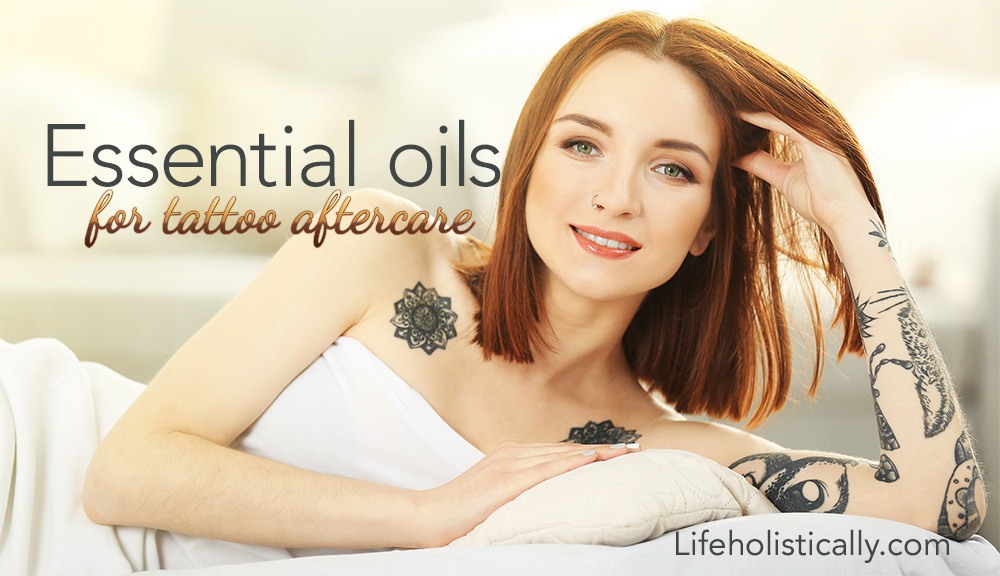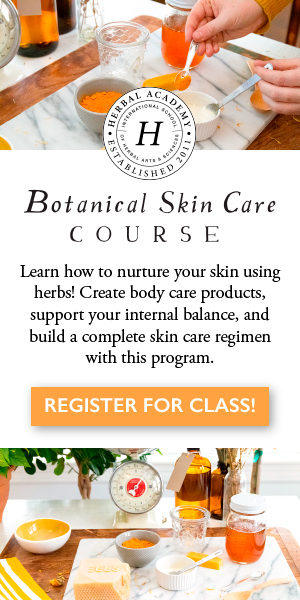The tradition of tattoos has been around for thousands of years, and in the last couple of decades has really been accepted as mainstream. A Harris poll in 2012 found that 1 out of every 5 adults (21%) has at least one tattoo, and those numbers are significantly higher today [1]. Tattoos are a form of self-expression, enabling the body to become a canvas of sorts, a work of art.
Tattoo aftercare is important to avoid possible infection. Although it is rare, it does happen, oftentimes from improper aftercare or issues with the ink itself. One should not simply grab a lotion off the store shelf, or utilize a petroleum-based product.
After an individual gets a tattoo, they are sent home with aftercare instructions that include making sure the tattoo has room to breathe, keeping the area clean and moisturized at all times, using only the product that the artist recommends, avoid sun and chlorine and various other pieces of important instructions.
Unfortunately, over the years, individuals have used said petroleum-based products, which can trap dirt and germs and can be the exact cause of the infection that new tattoo owners are trying to avoid.
Can we utilize herbal and essential oil concoctions to not only heal a tattoo faster but also help to retain color vibrancy and skin integrity? Quality information regarding utilizing botanically based products as a part of skin care after a tattoo is not talked about often, therefore I thought it was very important to reach out to others in the community to find out its history. Professional experience speaks volumes to its safety and effectiveness.
I was honored to find two brilliant practitioners with years of the exact experience we need to have a clear picture. They are both very excited to share with all of us their findings.
For those that are not familiar with you or your work, can you introduce yourself and tell everyone a little bit about what you do?
Hello! I am Vivienne Campbell and am an herbalist. I’ve worked here in Ireland since I qualified 15 years ago. I run a clinic, teach herbal medicine, wild food foraging, and natural cosmetic-making. I also teach these world-wide via my online video course. Over the years I’ve formulated and produced professional natural skin care products for retail for myself and other brands. I also work very closely with clinical aromatherapists. I gave a lecture at the first ever Botanica conference back in 2012 and have been involved with them ever since. I have also interviewed with the producers of the upcoming aromatherapy documentary. They filmed one of my herb walks and interviewed me about herbs, essential oils and sustainability issues (I’m passionate about organics and sustainability issues, having taught classes at an organic seed bank since 2004). There’s heaps of info on my website, The Herbal Hub.
![]()
My name is Gillian Parkinson, I live in Roxburgh, Central Otago, New Zealand. My love for essential oils began about 25 years ago, in 2009 I decided to make it official and began my official studies with AromaFlex, studying Cert. Aromascience, this was a 770+ course which I absolutely loved. I graduated end of 2010.
My company Le’Esscience was born, I have a private practice where I provide a massage service, consultation & blending essential oil products. I also have 2 online stores where I make products and ship them worldwide.
I have a few stand out products (all developed by me, I have huge ethics and will not copy anyone’s recipes), to name three, Puppps Relief (a blend that assists in relieving symptoms for a distressing pregnancy rash), MendBlend, first aid blend and TINKture Tattoo Aftercare.

I wanted to talk a little bit today about utilizing essential oils topically for tattoo aftercare. There is not much by way of research or documentation regarding using essential oils in this manner. What is your experience here?
V.C.-Like some of the best things in life, I got into treating this by accident! I don’t have any tattoos but one of my patients was really into them and back in 2004 he asked me to try to make an aftercare product. I met his tattoo artist and he showed me what they used and asked me to try to make something similar. He was buying a natural ointment from the USA, but back then not much was known about tattoo aftercare and most tattoo artists were telling their clients to apply Preparation H, a hemorrhoid cream! I explained to them that this would be more likely to slow down healing rather than help it to happen.
I made a gentle natural ointment using carrier oils and herbal infused oils that traditionally help the skin to heal and prevent scarring. I also included some essential oils to add antiseptic properties to try to prevent infection and to give the product an appealing fragrance. I used rosemary, lavender, frankincense, and sandalwood (it just goes to show how long ago this was: it was before I learned about the sustainability issues of using sandalwood oil).
G.P.- I have around 8 years’ experience in this particular field now, being heavily tattooed myself, I’ve worked in the industry since I developed TINKture.
I decided to develop a tattoo aftercare product to use personally due to the lack of a product that actually aided and sped the healing process, I bruise like a plum and swell so I wanted something to help with that as well so I made my own back in 2010. My tattoo artist was so impressed he said I had to do something with it, so I requested around 20 testers, feedback was incredible, and there were no negative reactions so 6 months later I put it to market. TINKture has a real point of difference due to the fact it actually aids and speeds the healing process, it doesn’t just soothe the area, it has analgesic, anti-inflammatory, antiseptic properties and assist with the itchy stage too.
I can also help (along with antihistamine support) when someone has an allergic reaction to ink, I have experienced this and it is unpleasant and can be very painful. I have great hints and tips to get through this stage, still using TINKture as well as antihistamines and covering and washing for 7-10 days.
I have sold thousands of bottles now, and the feedback has been incredible.
Some individuals are really unsure if this is a safe practice. Why are you confident in employing them in this manner? Have you ever received any negative feedback?
V.C-Well firstly, I was asked by the tattoo artists to do this. It was their idea, not mine so I wasn’t going into it blindly. The confidence came from their feedback. The artists loved the product because they found that it preserved the colours and lines of their artwork much better than other products or no aftercare at all. If the skin doesn’t heal properly then this impacts on the artwork so well-healed skin=a better-looking tattoo and that is better for the tattoo artist (the artists I worked with won several awards). Over the years that I made this for them (6 years), I made thousands of jars of this ointment. Yes, some people had reactions to it but that is to be expected when you are dealing with numbers this high. Occasionally someone would be allergic to one of the ingredients. The recommendation would be to wash it off immediately and go back to their tattoo artist for alternative care advice. The tattoo artists were very helpful in these situations: some of their customers were allergic to the ink too! It just has to be dealt with sensibly.
When it comes to applying aftercare, less is more. A thin layer of ointment applied regularly is the thing that we found worked best for skin healing, rather than slathering on a huge amount and stopping the skin from being able to breathe. The tattoo has to be gently washed before each application of ointment. If people don’t do this then they can trap germs, it gets infected and ultimately this is more work for the tattoo artist because the tattoo gets damaged when the skin doesn’t heal properly and they need to spend additional time doing repair work on the tattoo.
The tattoo artists loved this product because when people used it their work looked better, the colours were brighter, the tattoos lasted in peak condition for longer and it reduced the number of time (unpaid hours) that they had to spend fixing work that had been damaged by insufficient aftercare treatment.
G.P.- It is safe if it is made correctly, using essential oils suitable for wound healing, don’t have contraindications (pregnancy, health conditions etc) the correct dilution, the appropriate carrier oils, directions are followed and storage and shelf life is respected.
I haven’t had ‘negative’ feedback per say, I have had people confuse reactions to allergies to ink, I’m so schooled on this subject and can tell the difference. I help any customer by asking them to send me photos of what’s happening, usually, once I see the photo, I can tell what’s going on. Inks have improved over the years, but there are still artists that ‘cut their own ink’ and use things like liquid soap, mouthwash, witch hazel, propylene glycol to cut ink, also some inks have metals in them, so mostly, it’s these ingredients that people react to. TINKture can help with settling the symptoms.
I can honestly say, I have never been told of an actual allergic reaction, it is rare if someone isn’t already sensitized to essential oils (due to incorrect or overuse) and the product has been blended correctly.
Below is a review from one of my stockiest – I didn’t request this, he just wrote it unprompted
“As a tattoo studio owner and after tattooing for over 10 years now I can honestly say this is the best product I have come across for healing tattoos. I have tried many over the years with varying results and my wife and I agree, this is the product we will be stocking and recommending to our clients. We have used it and stocked it for some time now. We were so impressed with both the product and the lovely people behind it that my wife wanted to model for the promo. So she did. That’s my beautiful wife in the poster. That’s how much we believe in the product. Check it out for yourself.”
Lampin
Lampin Ink
I assume this is not a one size fits all situation. Is there anything that you want to include on the topic? Are there specific oils that we should stay away from? What would you like everyone reading this to know regarding essential oils and tattoo aftercare?
V.C-Absolutely. No ingredient (natural or synthetic) suits everyone in the world and there will always be someone who will react to something, no matter how gentle the ingredients. Don’t panic if this happens, just wash it off and don’t use a product containing that ingredient again.
*Make something gentle. It’s not a disease or a massive infection that you are trying to treat.
*Use a very low percentage of essential oils: this product doesn’t need to be strong.
*Use fixed and herbal infused oils that are gentle.
*Avoid calendula infused oil: I know it’s recommended for skin healing but it seems to irritate and aggravate skin conditions in about 1 in ten people from what I’ve seen. It can heat up a wound and worsen it. A tattoo artist from the Netherlands that I worked with found this too and used to avoid natural aftercare products containing this oil.
*Legal work for retailing this product: depending on which country you are in, you may need to do some lab work to get it tested and approved as a retail cosmetic product. This is certainly the case now in EU countries. However, don’t worry about this. Products made from oils, butter and waxes (i.e. water-free products) are straightforward and relatively inexpensive to get tested and assessed by a cosmetic chemist. Depending on which country you are in and the rules there, you’ll need this work done so that you are insured for making this as a legal retail product. If you simply want to make some for some clients who attend your aromatherapy clinic then you shouldn’t need to do this because it should be covered like any other treatment you do there.
Thanks for asking me to talk about this. I made this product for tattoo artists in Ireland for years until the recession here got very bad and some of the studios started to close down. It was a beautiful product to make (it smelled fantastic!), I had great fun doing all the graphic design work for it, taking photos of the tattoos and collecting testimonials. I think you’ve given me the nudge I needed to start making it again so watch this space!
G.P.- I think THE most important factor is to find out if the essential oil aftercare (well any aftercare actually) you are using (which doesn’t come from a large manufacturer ie nappy rash creams, which I don’t recommend using) has been developed and made by someone with professional qualifications in that field, this is VITAL as unqualified people will not understand adverse reactions, contraindications :ie using beeswax or sweet almond oils, useless & potentially dangerous for anyone with bee or nut allergies, essential oil safety, the actual active properties of the ingredients, if it’s safe if it gets in the wrong hands (a child, pregnant woman etc). This includes people who just google, hobbyists, tattoo artists even, resellers of products that may be suitable to use but have no official experience in blending or understand the process of wound healing. If you are unsure, ask questions – the qualified practitioner will not hesitate in reassuring you.
I would never use peppermint, tea tree, rosemary specifically but importantly, essential oils that are not suitable for wound healing – and nothing more than 2-3% dilution.
It truly also helps, if the person making the products, yes, has the qualifications, but is also tattooed, in many places! – I have learned SO much about how different areas heal differently, healing tattoos in the summer is different from healing tattoos in the winter, certain fabrics irritate healing ink, the weather, your health too, if you are sick, you should not get tattooed, if you do, expect it to take longer to heal, if you have a health condition, such as fibromyalgia, expect your ink to take longer to heal – I developed TINKture with all these variables in mind, making it a safe, reliable and extremely effective natural (& vegan) product to aid & speed the healing process.
It all counts!
I would like to thank Vivienne and Gillian for sharing their expertise with us. Understanding the years of training and wisdom that are behind formulating essential oils for tattoo aftercare helps us tremendously.
There is an inherent risk of applying a product not recommended by a professional versed in skin care formulating. Both of these amazing professionals make a product very specific to the tattooed skin based on a lot of education and experience. I would discourage a home user from attempting to blindly blend something for their own use or seeking advice from a Pinterest image. Please seek advice from someone with significant knowledge on the subject.

Reference
[1] http://www.pewsocialtrends.org/2010/02/24/millennials-confident-connected-open-to-change/
BEFORE YOU GO! Remember to sign up for my FREE Facebook group! Hang out with me and THOUSANDS of other Essential Oil lovers looking to learn, click on to join Real Essential Oil Education Group!
Check out my FREE offer below!




